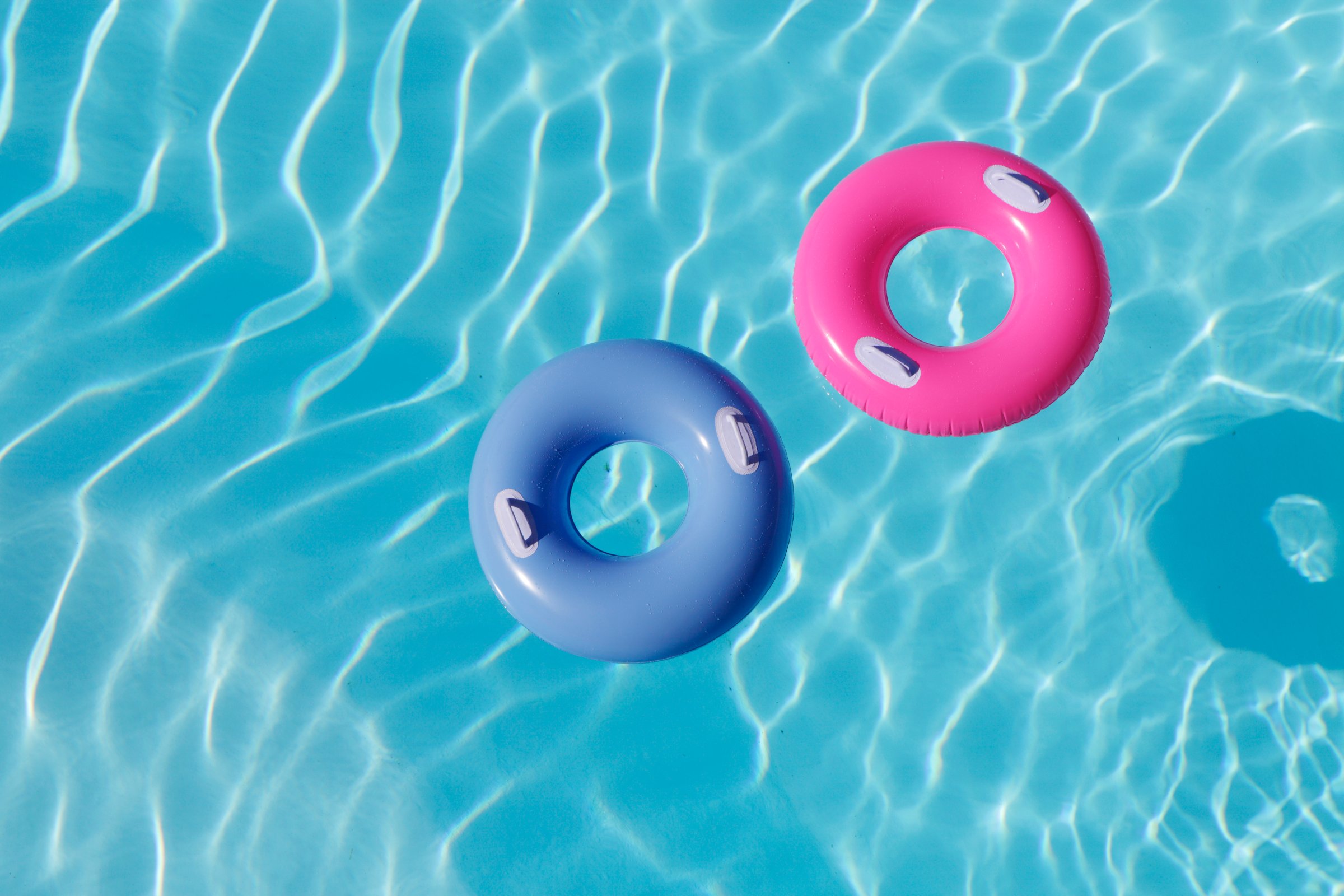
Just in time for summer, two new reports from the Centers for Disease Control and Prevention (CDC) are highlighting some scary-sounding risks associated with swimming pools and outdoor water playgrounds: an uptick in parasitic infections caused by Cryptosporidium bacteria, and the potential for injury from inhaled chlorine gas.
The papers were both published recently in the CDC journal Morbidity and Mortality Weekly Report. The first discusses how reported cases of Cryptosporidium infection, also known as Crypto, have tripled in the United States since 2004. Preliminary data also suggests that incidences have doubled in the last few years alone, from 16 separate outbreaks in 2014 to 32 outbreaks in 2016.
These outbreaks were reported in a total of 13 states, but the report focuses specifically on cases reported in Alabama, Arizona, and Ohio. In these three states alone, more than 2,300 people were confirmed to have a Crypto-related illness in 2016.
Crypto is the most common cause of diarrhea linked to swimming pools or water playgrounds, according to the CDC, and it spreads when people swallow something (usually pool water) that has come into contact with the feces of a sick person. It can make people ill for up to three weeks, and can cause watery diarrhea, stomach cramps, and nausea or vomiting that can lead to dehydration.
It’s not clear whether more people are actually getting sick from Crypto, or if better surveillance and laboratory testing has led to more cases being identified, the report noted.
Registered nurse Michele Hlavsa, chief of CDC’s Healthy Swimming Program and lead author of the new paper, says the best way people can protect themselves from Crypto is to not swallow the water in pools or other swimming facilities. “In addition, we as swimmers should not be swimming while we have diarrhea, and we should not allow our kids to swim with diarrhea,” she adds.
Because Crypto can stay alive for days even in pools with standard levels of chemicals, the CDC recommends that pools close entirely and be treated with high levels of chlorine if a Crypto outbreak—or a case of diarrhea in the pool—is reported.
People who have a confirmed case of Crypto should wait two weeks after their symptoms subside before swimming again. That doesn’t always happen, though: The new report revealed that, when victims of one Crypto outbreak in Ohio were interviewed, 43 people admitted to swimming at a recreational venue (or several) while they were still sick.
Rinsing off in the shower before getting in the water, taking children on frequent bathroom breaks, and not changing diapers near the pool can also reduce the spread of Crypto and other dangerous germs, Hlavsa says.
MORE: You Asked: Are Hot Tubs Dangerous?
In the second report, researchers at the California Department of Public Health studied nine instances of toxic chlorine gas releases at swimming pools in their state between 2008 and 2015. One of those events sickened 34 pool-goers, causing vomiting, coughing, eye irritation, and respiratory distress. (Half were treated at the scene by emergency medical technicians, and half were transported to a local emergency department; all but one were released the same day.)
In all of these incidents, it was determined that chlorine and other chemicals were inappropriately dispensed while the pools’ recirculation pumps were deactivated, “causing the chemicals to mix at concentrations that resulted in the generation of toxic chlorine gas.”
Following state and local regulations, as well as recommended guidelines developed by the CDC, may have prevented these incidents, the paper concluded. Public swimming facilities should conduct regular checks on their equipment when no guests are present, they wrote, and “aquatic staff members can be trained to recognize the signs and symptoms of chlorine exposure and how to respond if noted.”
The authors point out that, in 2012, more than 4,800 people across the United States visited emergency rooms because of “pool chemical–associated health events” including skin burns, eye irritation, and problems with breathing in chemicals.
Hlavsa, who was not involved in the second study, says pool operators should always read chemical and equipment instructions carefully—and that pool guests should always alert owners or staff members if they notice anything strange about the water, the pool’s smell, or any potential symptoms they may be experiencing.
She also stresses that swimming can be a healthy and enjoyable activity, and it’s a great way to get exercise (and stay cool) during hot summer months. But it’s important for aquatic-center staff, visitors, and owners of private pools (and hot tubs!) to stay alert and watch for symptoms that may indicate a water- or chlorine-related illness.
“We definitely want everyone going out and getting that physical activity and enjoying time with friends and family,” she says. “We’re just asking people to be healthier and smarter about it.” No one wants to spend their summer sick with diarrhea, chemical burns, or other pool-related problems, she adds. “These are all preventable,” she says; “we just need to all take a few simple steps.”
This article originally appeared on RealSimple.com
More Must-Reads from TIME
- Donald Trump Is TIME's 2024 Person of the Year
- Why We Chose Trump as Person of the Year
- Is Intermittent Fasting Good or Bad for You?
- The 100 Must-Read Books of 2024
- The 20 Best Christmas TV Episodes
- Column: If Optimism Feels Ridiculous Now, Try Hope
- The Future of Climate Action Is Trade Policy
- Merle Bombardieri Is Helping People Make the Baby Decision
Contact us at letters@time.com